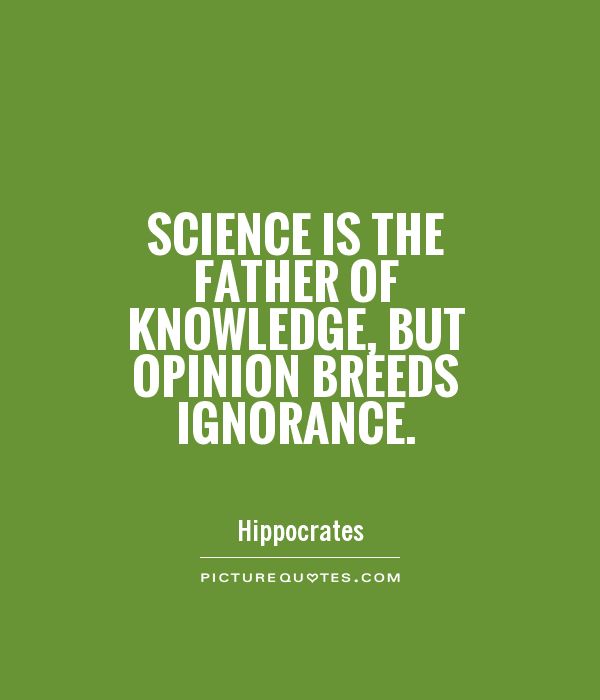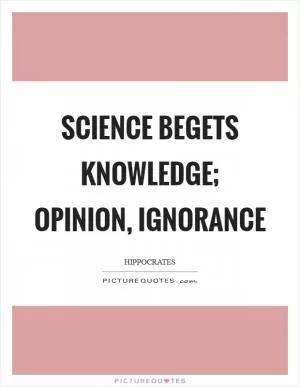Science is the father of knowledge, but opinion breeds ignorance

Science is the father of knowledge, but opinion breeds ignorance
Hippocrates, often referred to as the father of medicine, was a Greek physician who lived in the 5th century BC. He is known for his contributions to the field of medicine and his famous quote, "Science is the father of knowledge, but opinion breeds ignorance." This quote highlights the importance of relying on scientific evidence and facts rather than personal opinions or beliefs when seeking knowledge.In the context of Hippocrates' words, it is important to understand the distinction between science and opinion. Science is based on empirical evidence, experimentation, and observation, while opinion is often subjective and influenced by personal biases. Science seeks to uncover the truth through systematic inquiry and analysis, while opinion can lead to misinformation and ignorance.
Hippocrates believed that true knowledge could only be obtained through the rigorous application of scientific principles. He understood the dangers of relying on opinion alone, as it can lead to false beliefs and misconceptions. In the field of medicine, Hippocrates emphasized the importance of using evidence-based practices and treatments to ensure the best outcomes for patients.
Today, the importance of science in acquiring knowledge is more relevant than ever. With the rise of misinformation and fake news, it is crucial to rely on scientific evidence and expertise to make informed decisions. In the age of social media and instant communication, opinions can spread quickly and easily, leading to confusion and ignorance.
Hippocrates' words serve as a reminder of the importance of critical thinking and skepticism when evaluating information. By questioning opinions and seeking out scientific evidence, we can avoid falling into the trap of ignorance. Science provides a solid foundation for knowledge, allowing us to separate fact from fiction and make informed choices in our lives.












 Friendship Quotes
Friendship Quotes Love Quotes
Love Quotes Life Quotes
Life Quotes Funny Quotes
Funny Quotes Motivational Quotes
Motivational Quotes Inspirational Quotes
Inspirational Quotes